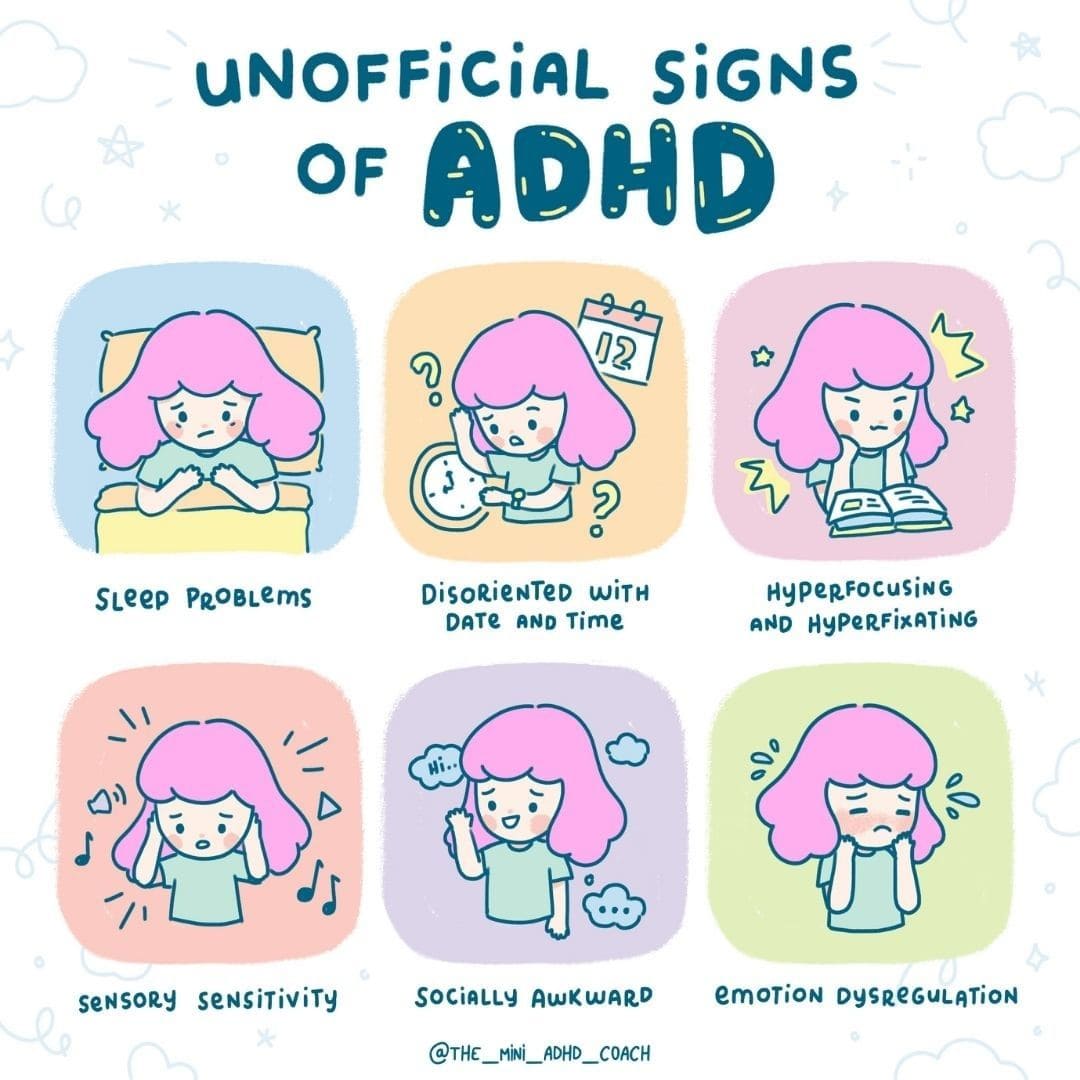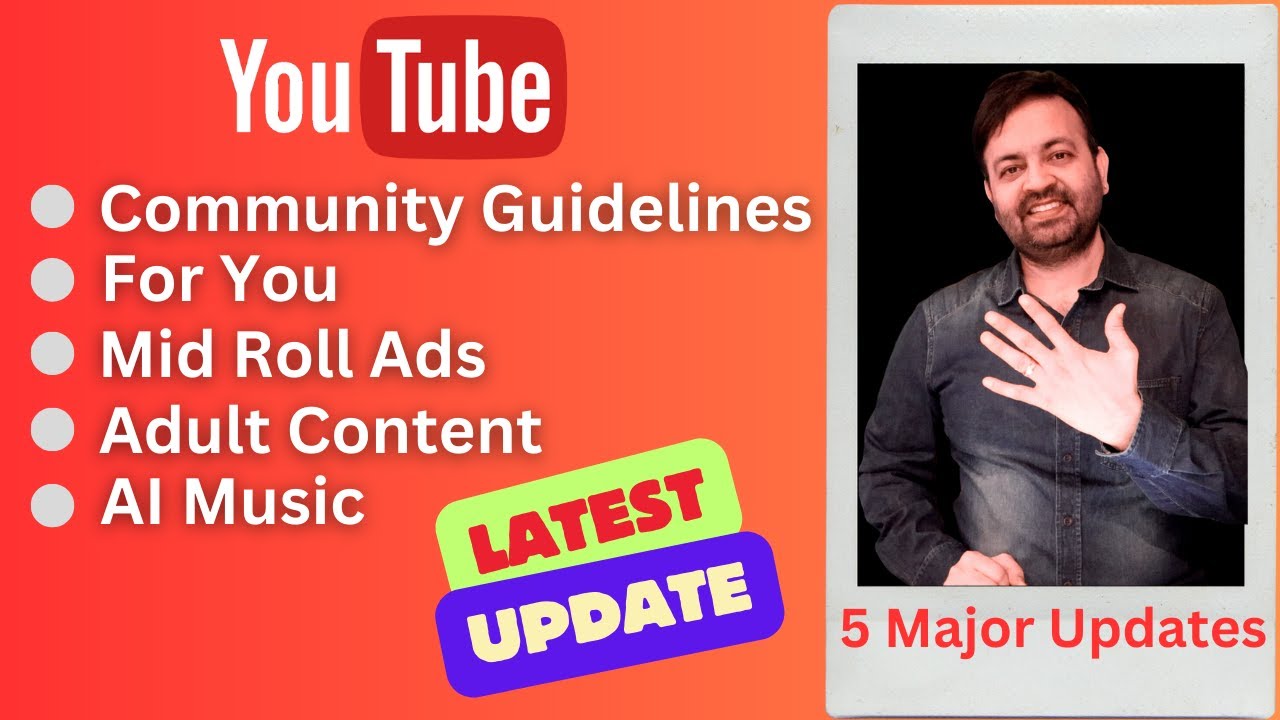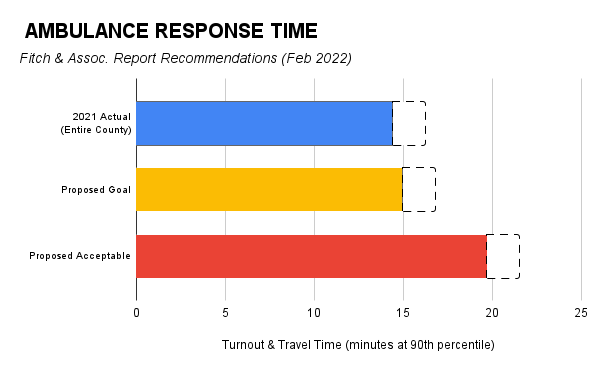8 Unexpected Signs Of ADHD In Adults

Table of Contents
Chronic Procrastination and Time Management Issues – A Hallmark of ADHD in Adults
Beyond the obvious struggles with focus, ADHD in adults often presents as significant challenges with time management and procrastination. This isn't simply laziness; it's a core symptom stemming from underlying executive dysfunction.
Beyond the To-Do List: The Deeper Issues of Executive Dysfunction
Executive functions are the cognitive skills that allow us to plan, organize, and execute tasks. In adults with ADHD, these functions are often impaired. This leads to:
- Difficulty prioritizing tasks: Feeling overwhelmed by even simple to-do lists, struggling to determine which task to tackle first.
- Starting projects but not finishing them: Beginning tasks with enthusiasm, but losing motivation or focus before completion.
- Feeling overwhelmed by simple tasks: Simple chores or errands can feel insurmountable due to difficulty breaking them down into manageable steps.
- Consistent lateness: Difficulty estimating time needed for tasks, leading to chronic lateness for appointments and deadlines.
These difficulties aren't just about poor organization; they are rooted in the brain's inability to efficiently manage working memory, planning, and task initiation. This can significantly impact work performance, relationships, and overall well-being. Imagine consistently missing deadlines at work, leading to stress and potential job insecurity. Or consider the strain on relationships when consistent lateness and broken promises become a pattern.
Difficulty with Organization and Clutter – A Telltale Sign of ADHD in Adults
A messy workspace or home is often associated with laziness, but for many adults with ADHD, it's a direct consequence of their condition. This disorganization isn't simply a matter of choice; it's a physical manifestation of a mind struggling to regulate attention and manage information effectively.
The Physical Manifestation of a Disorganized Mind:
- Messy workspace: A perpetually cluttered desk or workspace, making it difficult to find necessary items and focus on tasks.
- Losing items frequently: Misplacing keys, phones, wallets, and other essential items on a regular basis.
- Struggling to maintain a clean home: Feeling overwhelmed by the sheer volume of cleaning and organizing tasks, leading to a messy living space.
- Feeling overwhelmed by disorganization: The visual clutter contributes to a feeling of being overwhelmed and unable to cope.
The link between organizational struggles and ADHD lies in the challenges of attention regulation and working memory. Adults with ADHD may struggle to prioritize tasks, remember where they put things, or even begin the process of cleaning and organizing. Fortunately, strategies such as implementing organizational tools like digital calendars and utilizing decluttering techniques can significantly improve organization and reduce feelings of overwhelm.
Emotional Dysregulation and Intense Emotions in Adults with ADHD
While impulsivity is often associated with ADHD, emotional dysregulation is another significant symptom that's often overlooked. This refers to the difficulty in managing and regulating emotional responses.
Beyond Impulsivity: Understanding Emotional Volatility
Adults with ADHD may experience:
- Sudden mood swings: Rapid shifts in mood, from euphoria to irritability, without clear triggers.
- Intense emotional reactions: Overreacting to situations that others might find minor or easily manageable.
- Difficulty managing anger or frustration: Experiencing disproportionate anger or frustration, leading to conflict in relationships.
- Feeling easily overwhelmed emotionally: Feeling overwhelmed by strong emotions, leading to emotional shutdowns or meltdowns.
These emotional experiences are linked to the neurological underpinnings of ADHD, affecting the brain's ability to process and regulate emotional information. Coping mechanisms such as mindfulness techniques, deep breathing exercises, and regular physical activity can help manage intense emotions and improve overall emotional regulation.
Restless Legs and Difficulty Relaxing – Physical Symptoms of ADHD in Adults
ADHD isn't just a mental condition; it can also manifest through physical symptoms. The constant mental activity often translates into physical restlessness and difficulty relaxing.
The Body's Response to an Overactive Mind:
- Restless legs syndrome: An irresistible urge to move the legs, often accompanied by uncomfortable sensations.
- Difficulty falling asleep: Racing thoughts and physical restlessness interfere with sleep quality.
- Fidgeting excessively: A constant need to move, tap, or fidget with objects.
- Feeling constantly on edge: A pervasive sense of unease and inability to relax.
This physical restlessness is a direct consequence of the hyperactivity associated with ADHD. The brain's inability to quiet down leads to physical manifestations, such as restless legs and difficulty relaxing. Strategies for improving sleep quality, such as establishing a regular sleep schedule and practicing relaxation techniques like yoga or meditation, can be immensely helpful.
Impulsivity and Poor Decision-Making in Adults with ADHD
Impulsivity is a common symptom of ADHD, often leading to poor decision-making with long-term consequences.
The Unintended Consequences of Impulsive Behavior:
- Making rash decisions: Acting without thinking through the implications of their choices.
- Difficulty considering long-term consequences: Focusing primarily on immediate gratification, disregarding potential future problems.
- Impulsive spending habits: Making unplanned purchases, often resulting in financial difficulties.
- Engaging in risky behaviors: Participating in activities that could lead to harm or negative consequences.
This impulsivity is directly linked to impaired executive functions, specifically the ability to inhibit actions and consider consequences. Strategies for improving impulse control include mindfulness practices, cognitive behavioral therapy (CBT), and developing coping mechanisms for managing urges.
Relationship Challenges Due to ADHD in Adults
The symptoms of ADHD can significantly impact relationships, creating misunderstandings and conflict.
Navigating Intimacy and Connection with ADHD:
- Difficulty maintaining relationships: Struggling to build and maintain healthy relationships due to communication problems and impulsivity.
- Conflict with partners: Frequent arguments stemming from misunderstandings, unmet expectations, and differing communication styles.
- Communication problems: Difficulties expressing needs and emotions clearly, leading to frustration and misunderstandings.
- Frustration with others’ expectations: Feeling misunderstood and overwhelmed by others' expectations of organization and responsibility.
Open communication, empathy, and a willingness to seek professional help are crucial for navigating these challenges. Couples therapy or individual therapy can provide tools and strategies for improving communication and managing conflict.
Problems with Focus and Concentration – Often Overlooked in Adults with ADHD
While hyperactivity is often associated with ADHD, inattentive symptoms are equally significant and frequently overlooked.
Beyond Hyperactivity: The Subtleties of Inattentive ADHD
Adults with predominantly inattentive ADHD might experience:
- Difficulty sustaining attention during conversations: Zoning out or losing track of the conversation's flow.
- Zoning out frequently: Experiencing periods of mental disengagement or "spacing out."
- Struggling to concentrate on tasks: Difficulty focusing on tasks, leading to incomplete work and increased frustration.
- Feeling easily distracted: Being easily sidetracked by external stimuli or internal thoughts.
Understanding the differences between predominantly inattentive and predominantly hyperactive ADHD is vital for accurate diagnosis and treatment. Strategies such as mindfulness, breaking tasks into smaller chunks, and creating a distraction-free workspace can help improve focus and concentration.
Hyperfocus as a Symptom of ADHD in Adults
Hyperfocus, the ability to intensely concentrate on a specific task or interest for extended periods, is often seen as a positive aspect of ADHD. However, it can be a double-edged sword.
The Double-Edged Sword of Intense Concentration:
- Ability to hyperfocus on specific tasks or interests: Exhibiting intense focus and productivity when engaged in activities they find stimulating.
- Neglecting other responsibilities: Becoming so engrossed in a task that they neglect other important responsibilities.
- Difficulty shifting attention: Struggling to switch tasks or redirect their attention, even when necessary.
- Potential for burnout: The intense focus can lead to exhaustion and burnout if not managed effectively.
While hyperfocus can be a powerful tool, it’s crucial to learn techniques for managing it effectively. Time management strategies, setting boundaries, and incorporating breaks can help prevent burnout and ensure that other important tasks are not neglected.
Conclusion
This article has explored eight unexpected signs of ADHD in adults, highlighting how this condition manifests in various aspects of life, from organizational struggles and emotional dysregulation to physical restlessness and relationship challenges. Recognizing these signs is the first step towards seeking help and improving your quality of life. If you recognize yourself or someone you know in these descriptions, consider seeking a professional diagnosis for ADHD in adults. Early intervention and treatment, such as medication, therapy, or coaching, can significantly improve quality of life. Don't hesitate to reach out to your doctor or a mental health professional to discuss your concerns. There are resources available to help you understand and manage ADHD in adults.

Featured Posts
-
 Thunder Over Louisville 2024 Fireworks Show Cancellation Due To Flooding
Apr 29, 2025
Thunder Over Louisville 2024 Fireworks Show Cancellation Due To Flooding
Apr 29, 2025 -
 Trump And Baseball Johnny Damons Support For Pete Roses Hall Of Fame Bid
Apr 29, 2025
Trump And Baseball Johnny Damons Support For Pete Roses Hall Of Fame Bid
Apr 29, 2025 -
 Why Older Adults Are Choosing You Tube For Entertainment
Apr 29, 2025
Why Older Adults Are Choosing You Tube For Entertainment
Apr 29, 2025 -
 Broadcoms Proposed V Mware Price Hike A 1 050 Increase For At And T
Apr 29, 2025
Broadcoms Proposed V Mware Price Hike A 1 050 Increase For At And T
Apr 29, 2025 -
 Debunking The Myths Exploring The True Nature Of Ai Thought Processes
Apr 29, 2025
Debunking The Myths Exploring The True Nature Of Ai Thought Processes
Apr 29, 2025
Latest Posts
-
 Yate Recycling Centre Incident Air Ambulance Response
Apr 30, 2025
Yate Recycling Centre Incident Air Ambulance Response
Apr 30, 2025 -
 Air Ambulance Called To Incident Near Yate Recycling Centre
Apr 30, 2025
Air Ambulance Called To Incident Near Yate Recycling Centre
Apr 30, 2025 -
 Mortalite Routiere Le Role Des Glissieres De Securite Dans La Prevention Des Accidents
Apr 30, 2025
Mortalite Routiere Le Role Des Glissieres De Securite Dans La Prevention Des Accidents
Apr 30, 2025 -
 Ameliorer La Securite Routiere L Efficacite Des Glissieres De Protection
Apr 30, 2025
Ameliorer La Securite Routiere L Efficacite Des Glissieres De Protection
Apr 30, 2025 -
 Plus De Glissieres Moins D Accidents Evaluation De L Impact Sur La Securite Routiere
Apr 30, 2025
Plus De Glissieres Moins D Accidents Evaluation De L Impact Sur La Securite Routiere
Apr 30, 2025
